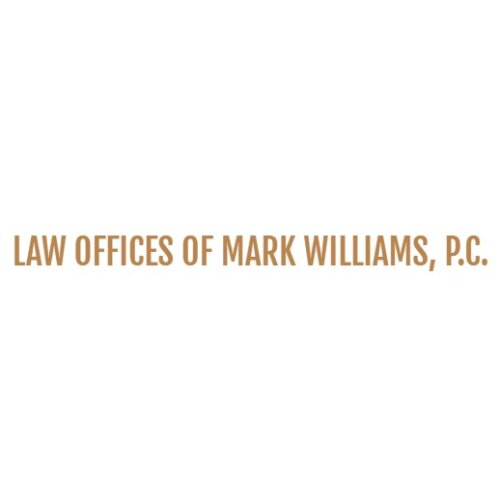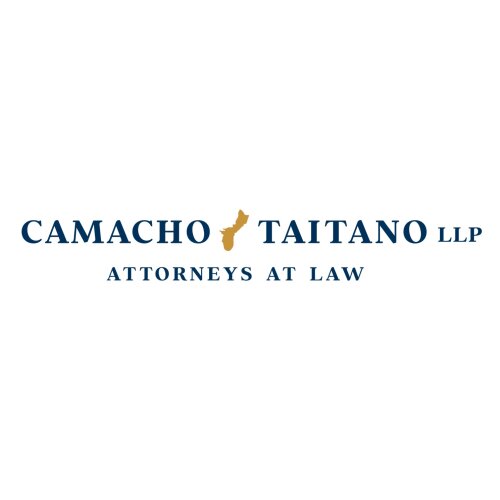Best Public-Private Partnerships (PPP) Lawyers in Guam
Share your needs with us, get contacted by law firms.
Free. Takes 2 min.
Or refine your search by selecting a city:
List of the best lawyers in Guam
About Public-Private Partnerships (PPP) Law in Guam
Public-Private Partnerships, commonly known as PPPs, are collaborative arrangements between government agencies and private sector companies for the provision of public infrastructure or services. In Guam, PPPs typically involve projects such as roads, airports, utilities, healthcare facilities, education, and other critical services. These partnerships are structured to leverage the strengths of both the public and private sectors to deliver projects that might otherwise face funding or technical challenges if attempted by the government alone. The legal framework governing PPPs in Guam sets out specific guidelines to ensure fairness, transparency, and accountability for all parties involved.
Why You May Need a Lawyer
Engaging in a Public-Private Partnership in Guam involves complex contracts, regulatory compliance, and significant financial commitments. You may need a lawyer in a range of situations, including:
- Understanding and negotiating PPP agreements
- Complying with local procurement laws and regulations
- Navigating approval processes through governmental agencies
- Addressing potential disputes between public and private partners
- Structuring project finance and risk allocation
- Ensuring environmental and labor law compliance
- Resolving issues related to land use or property rights
- Advising on cross-border investment concerns if international partners are involved
Legal advice is crucial to protect your interests, ensure compliance, and facilitate project success.
Local Laws Overview
Guam's legal environment for Public-Private Partnerships is influenced by a combination of local statutes, federal guidelines, and adopted best practices. Some of the key aspects to be aware of include:
- Procurement Law: PPP projects often fall under the Guam Procurement Act and related regulations that govern how the government can contract with private entities. These rules ensure fair competition and transparency during bidding and negotiation processes.
- Concessions and Long-Term Agreements: PPPs in Guam often involve long-term leases or concessions for operating infrastructure. There are specific rules concerning these agreements to safeguard public interests.
- Financing and Guarantees: Local laws outline how public funds can be used in PPP arrangements, including risk-sharing and financial guarantees from the government.
- Land Use and Environmental Compliance: Projects must comply with zoning, land use regulations, and environmental protection statutes specific to Guam.
- Oversight and Transparency: There are statutory requirements for regular reporting, independent audits, and public disclosure for major PPP projects in Guam.
Given the intersecting local and federal legal requirements, having legal guidance is especially important for navigating Guam's PPP landscape.
Frequently Asked Questions
What is a Public-Private Partnership (PPP)?
A PPP is a formal agreement between a public sector authority and a private company to finance, build, and operate projects or services traditionally provided by the government.
What types of projects qualify as PPPs in Guam?
Projects such as roads, schools, power plants, water systems, hospitals, and airports can be developed through PPPs in Guam.
How are PPP agreements initiated in Guam?
They are usually initiated through public procurement processes or a government-issued request for proposals. Sometimes, private companies can propose unsolicited PPP projects subject to government review.
Who regulates PPPs in Guam?
Public-Private Partnerships are regulated by the Guam government through specific agencies such as the Guam Economic Development Authority, as well as broader regulatory bodies overseeing procurement and public finance.
What laws affect PPPs in Guam?
Key laws include the Guam Procurement Act, Public Finance laws, environmental regulations, and, depending on the project, relevant federal statutes.
What are the risks in PPP projects?
Risks may include financing shortfalls, regulatory changes, public opposition, construction delays, and changes in political priorities.
How does a PPP differ from traditional public procurement?
PPPs generally involve long-term partnerships, risk-sharing, and private investment, while traditional procurement relies mainly on public funding and short-term contracts.
Do PPPs require public approval or legislative oversight?
Major PPP projects in Guam may require legislative approval, public hearings, or compliance with transparency and accountability rules.
Can foreign companies participate in PPPs in Guam?
Yes, foreign companies can participate but must comply with local corporate registration, licensing, and any federal restrictions.
Should I hire a lawyer for a PPP project?
Yes, legal support is highly recommended to navigate complex contracts, ensure regulatory compliance, and protect your financial interests.
Additional Resources
Several resources and organizations can provide valuable information and support for those interested in PPPs in Guam:
- Guam Economic Development Authority (GEDA): Offers guidance on public-private investment projects and relevant regulatory frameworks.
- Office of the Attorney General of Guam: Provides legal oversight and can clarify government contracting standards.
- Guam Bar Association: A resource for finding lawyers with experience in PPP law.
- Guam Procurement Office: Manages government procurement policies and procedures that affect PPPs.
- Guam Environmental Protection Agency: Advises on environmental compliance for development projects.
You may also find helpful guidelines from U.S. federal agencies and international PPP organizations on best practices.
Next Steps
If you need legal assistance with a Public-Private Partnership in Guam, consider the following steps:
- Assess your specific legal needs for your PPP project or potential involvement.
- Contact the Guam Bar Association or relevant legal directories to find lawyers experienced in PPP and government contracts.
- Consult with a legal advisor early in the process to ensure you understand your obligations, risks, and options.
- Prepare necessary documentation such as project proposals, business information, and any correspondence with government agencies.
- Stay informed on local regulations and seek clarification from governmental bodies when needed.
Taking these steps will help ensure you are well-prepared and legally protected when engaging in a PPP project in Guam.
Lawzana helps you find the best lawyers and law firms in Guam through a curated and pre-screened list of qualified legal professionals. Our platform offers rankings and detailed profiles of attorneys and law firms, allowing you to compare based on practice areas, including Public-Private Partnerships (PPP), experience, and client feedback.
Each profile includes a description of the firm's areas of practice, client reviews, team members and partners, year of establishment, spoken languages, office locations, contact information, social media presence, and any published articles or resources. Most firms on our platform speak English and are experienced in both local and international legal matters.
Get a quote from top-rated law firms in Guam — quickly, securely, and without unnecessary hassle.
Disclaimer:
The information provided on this page is for general informational purposes only and does not constitute legal advice. While we strive to ensure the accuracy and relevance of the content, legal information may change over time, and interpretations of the law can vary. You should always consult with a qualified legal professional for advice specific to your situation.
We disclaim all liability for actions taken or not taken based on the content of this page. If you believe any information is incorrect or outdated, please contact us, and we will review and update it where appropriate.
Browse public-private partnerships (ppp) law firms by city in Guam
Refine your search by selecting a city.










